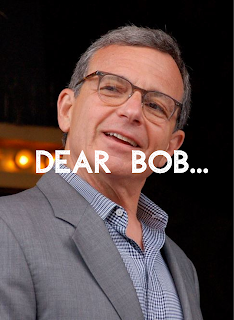by Ray Keating
Commentary
DisneyBizJournal.com
August 30, 2019
Since the modern environmental movement began in the late 1960s and 1970s, it’s been known for fads, feelings, and a rather bizarre faith in politics over economics and scientific facts. The latest example is the movement’s war on plastic – which, oddly, has been joined by assorted businesses, including the Walt Disney Company.
What’s changed in more recent times is the increasing number of people – and again, businesses – willing to go along with the movement’s talking points and jettison assorted facts. Why? Well, part of the answer lies with indoctrination by the environmental movement spreading across much of our educational system. In addition, standing up against plastic, for example, has become a form of virtue signaling.
If we’re talking virtue signaling, acting ignorantly, and pandering to a voting bloc, then politicians are going to be on board, and that’s the case in the places like the European Union, Canada, New York, Seattle and California, where single-use plastic bans have been imposed or are being considered.
Disney, again, is waging war on plastics in the name of protecting the environment. On July 28, 2008, Mark Penning, vice president for Animals, Science and Environment at the Disney Parks, wrote on the Disney Parks Blog: “By mid-2019, The Walt Disney Company will eliminate single-use plastic straws and plastic stirrers at all owned and operated locations across the globe, amounting to a reduction of more than 175 million straws and 13 million stirrers annually.”
And in April of this year, USA Today reported: “Effective Thursday – four days before Earth Day – Disneyland Paris is banning plastic straws and will now offer only a biodegradable paper version at guests' request... The rest of Disney Parks have started to introduce paper straws as an alternative and will fully follow suit within the next few months.”
Disneyland Paris President Natacha Rafalski was quoted: “The protection of our environment is not only deeply rooted in our brand DNA, but it is also a lasting commitment of our company as we aim to reduce our environmental impact – a critical part of our strategic vision for the years to come.”
And Bob Chapek, chairman of Disney Parks, Experiences, and Consumer Products, has been quoted, “Eliminating plastic straws and other plastic items are meaningful steps in our long-standing commitment to environmental stewardship.”
The current anti-plastic fad or craze – not just against straws but also taking on plastic bags (another target for reduction by Disney, by the way) – springs from talking points that the United States is causing a buildup of plastic pollution in our oceans.
Hmmm, call me crazy, but it might be worthwhile poking around and asking: Is that true?
In reality, ocean pollution has little to do with the United States. Instead, as the World Economic Forum reported:
But where does all this plastic waste come from?
Most of it is washed into the ocean by rivers. And 90% of it comes from just 10 of them, according to a study.
By analyzing the waste found in the rivers and surrounding landscape, researchers were able to estimate that just 10 river systems carry 90% of the plastic that ends up in the ocean.
Eight of them are in Asia: the Yangtze; Indus; Yellow; Hai He; Ganges; Pearl; Amur; Mekong; and two in Africa – the Nile and the Niger.
According to a Forbes report, five nations – China, Indonesia, Philippines, Thailand and Vietnam – dump “more plastic into oceans than the rest of the world combined.”
Well, that wasn’t too hard to figure out, was it?
So, ocean pollution is about poor waste disposal and treatment. If you have proper waste disposal systems, then plastics pollution of the oceans really isn’t an issue – such as is the case here in the United States.
Of course, there are ways that companies can have a real impact on the problem. Businesses and entrepreneurs thrive when they identify problems or opportunities, and then work to solve those problems or capitalize on opportunities. Poor waste disposal in a handful of countries is a business opportunity to improve the environment and earn profits.
If companies like Disney really want to make a difference, stop the virtue signaling and pandering to the environmental movement, and instead, build waste treatment systems in places that desperately need them.
I’m reminded of Walt Disney saying, “But if we can bring together the technical know–how of American industry and the creative imagination of the Disney organization—I’m confident we can create right here in Disney World a showcase to the world of the American free enterprise system.” While Walt was talking about a theme park, the principle remains the same for any business and all industries – including waste disposal.
Ray Keating is the editor, publisher and economist for DisneyBizJournal.com, and author of the Pastor Stephen Grant novels. He can be contacted at raykeating@keatingreports.com.
If you enjoyed this article, and since I am the author of the Pastor Stephen Grant novels and short stories, and other books, can I ask you to take at least one (preferably more) of the following steps?
1) The new Pastor Stephen Grant novel – DEEP ROUGH – has arrived! You can order the Kindle edition, the paperback, or the signed book.
2) Please join the Pastor Stephen Grant novels and short stories email list, and get the upcoming short story, THE TRAITOR, for free! Sign up here.
3) Buy one of the other Pastor Stephen Grant novels or short stories at Amazon.comor signed books at www.raykeatingonline.com.
4) Become a member of the Pastor Stephen Grant Fellowship, and get all kinds of FREE stuff, including each new book in the Pastor Stephen Grant series. Check out the levels and benefits here.
5) Pre-order my next book – FREE TRADE ROCKS! 10 POINTS ON INTERNATIONAL TRADE EVERYONE SHOULD KNOW – at Amazon.com for the Kindle, or signed books at https://raykeatingonline.com/products/freetrade.











